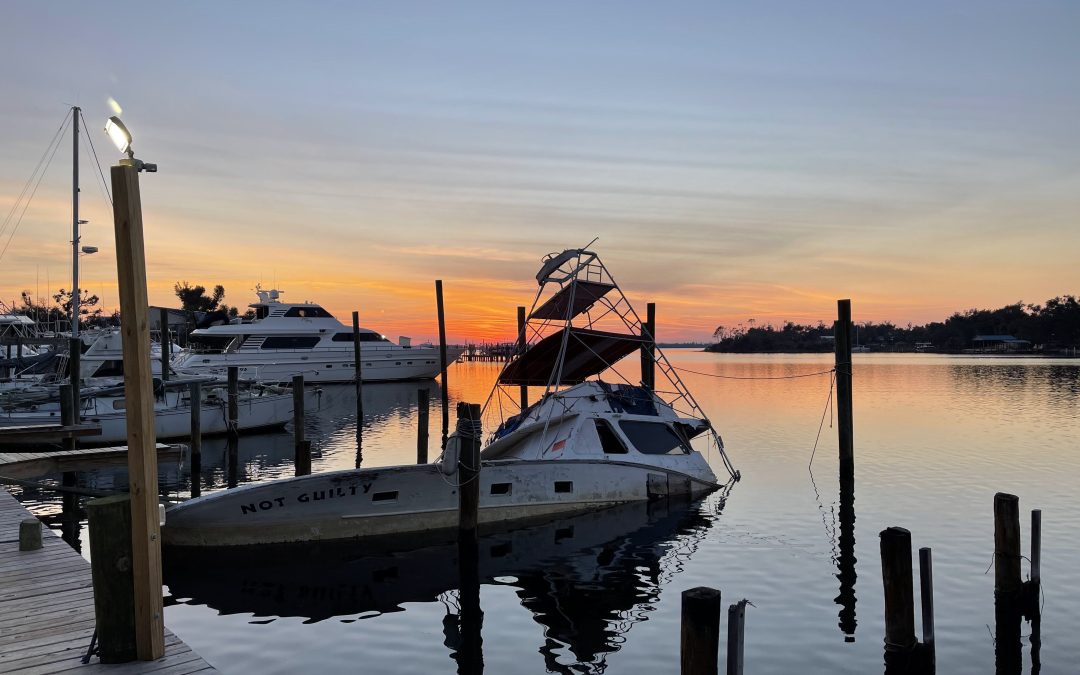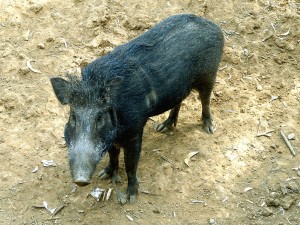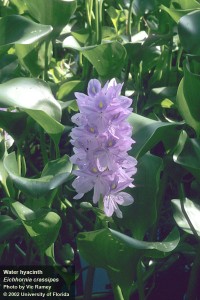
Stem to Stern (Northwest Florida November 2, 2023)

Organized and sponsored by Florida Sea Grant, the “Stem to Stern” workshop in November 2023 at the Emerald Coast Convention Center marked a significant gathering in marine conservation and management. This event drew together legal experts, representatives from the Florida Fish and Wildlife Conservation Commission (FWC), local marine resource coordinators, law enforcement, and industry stakeholders to tackle critical issues facing Florida’s marine environments. Through discussions that ranged from legal frameworks for boating and waterway access to environmental conservation strategies, the workshop facilitated a deep dive into the complexities of marine policy and stewardship. Discover new programs, insights, and collective expertise shared at “Stem to Stern.”
Florida Sea Grant Boating and Waterways Workshop
November 2, 2023 Emerald Coast Convention Center
1250 Miracle Strip Parkway SE – Ft. Walton Beach FL
9:00 – 9:25 WELCOME AND INTRODUCTIONS
Welcome
Rick O’Connor (Florida Sea Grant UF IFAS Extension)
Moderators –Mike Norberg and Jessica Valek (Okaloosa County)
Panel Discussion
Ryan Hinely (Northwest Florida Marine Industry)
Capt. Keith Clark (Florida Fish and Wildlife Conservation Commission)
Cecilia James (Panhandle Association of Code Enforcement – PAOCE)
Robert Turpin (Escambia County Division of Marine Resources)
Glenn Conrad (U.S. Coast Guard Auxiliary)
Phil Horning (Florida Fish and Wildlife Conservation Commission)
Pebbles Simmons (Florida Fish and Wildlife Conservation Commission)
9:25 – 10:10 BOATING AND WATERWAY ACCESS
Resources:
Boating, Waterways, and the Rights of Navigation in Florida (2019, 5th Edition)
Moderator – Tom Ankersen (Florida Sea Grant/UF IFAS Extension, Prof Emeritus)
Anchoring and Mooring
Brendan Mackesey (Pinellas County)
Boating Restricted Areas
Byron Flagg (Gray Robinson Law Firm)
10:10 – 10:15 Break
10:15 – 11:15 REGULATION AND ENFORCEMENT
Moderator – Robert Turpin (Escambia County Division of Marine Resources)
Marine Enforcement of Derelict and At-Risk Vessels
Resources: FWC Derelict and A-Risk Vessels
Phil Horning (Florida Fish and Wildlife Conservation Commission)
Capt. Keith Clark (Florida Fish and Wildlife Conservation Commission)
Lt. Jarrod Molnar (Florida Fish and Wildlife Conservation Commission)
Lt. Shelton Bartlett (Florida Fish and Wildlife Conservation Commission)
At Risk Vessels
Resources: FWC Derelict and A-Risk Vessels
Phil Horning (Florida Fish and Wildlife Conservation Commission)
Florida Vessel Turn-in Program (VTIP)
Resources:FWC Florida Vessel Turn-in Program (VTIP)
Phil Horning (Florida Fish and Wildlife Conservation Commission)
Partnering with FWC to Remove Derelict Vessels
Resources: FWC Derelict Vessel Removal Grant Program
Chantille Weber (UF IFAS Extension) and Scott Jackson (Florida Sea Grant, UF IFAS Extension)
11:15 – 12:15 Lunch
Post Lunch Q&A Derelict Vessel Discussion
12:15 – 12:55 WATERWAY ENVIRONMENTS
Moderator – Dr. Laura Tiu (Florida Sea Grant, UF IFAS Extension)
Update on Giant Salvinia
Resources: FWC Giant Salvinia
Derek Fussell (Florida Fish and Wildlife Conservation Commission)
Boating and Seagrass protection
Resources: Florida Sea Grant, Be Seagrass Smart – “Scars Hurt”
Savanna Barry (Florida Sea Grant, UF IFAS Extension)
12:55 – 1:20 BOATING SAFETY
Moderator – Chantille Weber (UF IFAS Extension)
Pontoon Boating Safety (Law Enforcement’s Perspective)
Kyle Corbitt (Okaloosa County Sheriff’s Department)
Pontoon Boating Safety (Operator’s Perspective)
Resources: Okaloosa County Watersport Operators Coalition
John Stephens (Okaloosa County Watersport Operators Coalition)
1:20 – 1:25 Break
1:25 – 2:10 PUBLIC EDUCATION
Moderator – Rick O’Connor (Okaloosa County)
Communicating with the Public
Resources: Florida Sea Grant Communications
Donielle Nardi (Florida Sea Grant, UF IFAS Extension)
Florida Friendly Visitor Program (Working with Recreational Boaters)
Resources: Florida Sea Grant – About Us!
Anna Braswell (Florida Sea Grant, UF IFAS Extension)
2:10 – 3:00 POLLUTION AND MARINE DEBRIS
Moderator – Thomas Derbes (Florida Sea Grant, UF IFAS Extension)
Clean Vessel Program
Resources:
Clean Vessel Program and help for Marinas
Clean Vessel Program and how Boaters can Help Keep Florida’s Waters Clean!
Vicki Gambale (Florida Sea Grant, UF IFAS Extension)
Preparing for Storms
Resources:
UF/IFAS Disaster Preparations and Recovery
UF/IFAS and Florida Sea Grant – Hurricane Prep: Securing Your Boat
Scott Jackson (Florida Sea Grant, UF IFAS Extension) and Chantille Weber (UF IFAS Extension)
3:00 – 3:15 EVALUATIONS – Rick O’Connor (Florida Sea Grant, UF IFAS Extension)
3:15 – 3:45 WRAP UP – Robert Turpin (Escambia County Marine Resources)
PROGRAM SPONSORS
Acknowledgement
We extend our deepest gratitude to all who contributed to the success of the “Stem to Stern” workshop. To our esteemed speakers, whose expertise and insights into marine conservation and management have been invaluable, we offer our sincere thanks. Your presentations were not only informative but also inspirational, guiding us toward a more sustainable future for our waterways.
A special acknowledgment goes to the members of the planning and program committee. Your dedication and hard work in organizing this event did not go unnoticed. From the initial planning stages to the execution of the workshop, your efforts have been the backbone of this successful gathering.
We also want to thank the authors of the surveys that have provided us with essential data and perspectives. Your research and analysis contribute significantly to our understanding of the challenges and opportunities within Florida boating and waterways.
Lastly, we are incredibly grateful for the support from our sponsors. Your generosity and commitment to Florida Sea Grant and marine conservation have been crucial in bringing this workshop to life. Your support not only made this event possible but also highlights your dedication to safeguarding our marine ecosystems.
Together, we have taken an important step towards protecting and enhancing Florida’s waterways. Thank you for your contributions, commitment, and shared vision for a sustainable future.
Information edited and compiled by: L. Scott Jackson, Chantille Weber, and Amon Philyaw, UF/IFAS Extension Bay County
An Equal Opportunity Institution. UF/IFAS Extension, University of Florida, Institute of Food and Agricultural Sciences, Andra Johnson, Dean. Single copies of UF/IFAS Extension publications (excluding 4-H and youth publications) are available free to Florida residents from county UF/IFAS Extension offices.





